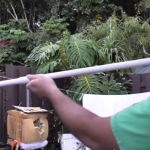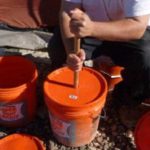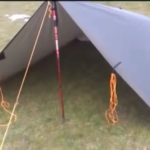How to Free up Some Extra Cash for Prepping

Prepping costs money, and we all know that developing a good set of tools, supplies and resources requires a significant investment over the course of time. The good news is that you don’t to spend all of your money now in order to get on the road to building a solid survival system for you and your family. Let’s take a look at some ways that you can minimize the financial impact of prepping in order to take the sting out of getting ready for the unexpected.
Use Discretionary Income

The best way to get started is to be cost-conscious and focus on using discretionary income. This is money that you don’t need to spend right away on essentials like the mortgage, rent, car payments or insurance. You may need to make some small sacrifices here and there in terms of channeling your spending from entertainment, dining out or buying comfort items, but these sacrifices are minimal. You are also not throwing your money away. Preparing is actually an investment in your future, and consequently, it will be money-well spent that will pay big dividends over the course of time.
Make Small Sacrifices

Going through a survival situation or disaster will involve making all kinds of sacrifices while learning to life with less and with different priorities. Consequently, it may help to get ready for this reality by making some sacrifices now. You don’t have to eliminate all of your creature comforts or live off of canned meats and vegetables, but the more things you can live without will keep more money in your pocket. You will also start to adjust to not being able to get everything that you want when you want it.
For example, think of how much money you spend on your favorite coffee product every month. Consider how much money you spend on getting the best possible satellite package or data plan. Scale back on these things, and you will have more money in your pocket while also learning how to “ration” things that are often taken for granted anyway.
The reality is that making little cuts like this will end up putting a lot of money in your pocket at the end of the month. Even little things like coupon shopping or taking advantage of discounts, sales or second-hand items will also make a huge impact on your overall spending. All of this extra money can be channeled into your preparedness efforts without causing you too much discomfort.
Prepping Doesn’t Cost a lot of Money

One misnomer about prepping is that it is expensive. While this is true if you make a huge investment on the front-end of your efforts, the reality is that a few dollars here and there will get you to the same place with minimal inconvenience. For example, canning foods costs about the same, if not less, than buying commercial products, even if the initial investment seems high. Getting tools and basic material for projects to make you more self-sufficient does not cost a fortune as well.
You don’t need to buy the most expensive gear or survival products on the market in order to develop a reliable and beneficial preparedness system. The trick is to do things in stages and dedicate small amounts of money to work on a couple of projects at a time. You will be amazed at how much you can accomplish simply by taking this approach, and you will be in a much better position in terms of preparedness a lot sooner than you think.
Starting to prepare is a lot like beginning a workout. We often make excuses to avoid going to the gym and dealing with the initial round of pain and discomfort before we start to see results. We often make excuses that we don’t have enough money to start prepping, even though we can free up that cash by making some simple and almost inconsequential changes to our spending habits. The trick is to be honest with ourselves, try to overcome the “excuse” phase and get to work. Take a good, hard look at how you can curb some discretionary spending and use it to your advantage today. You will be surprised at how much extra money you can have simply by cutting back on spending on things that you can live without in the first place.













